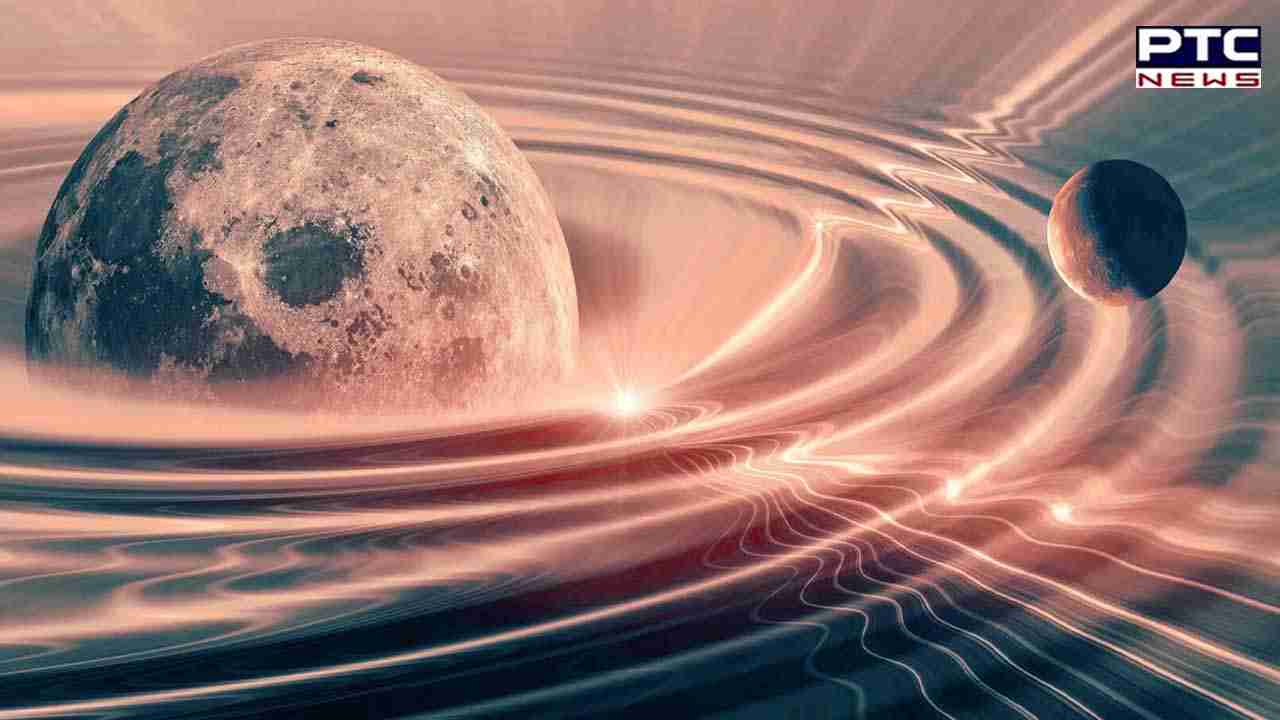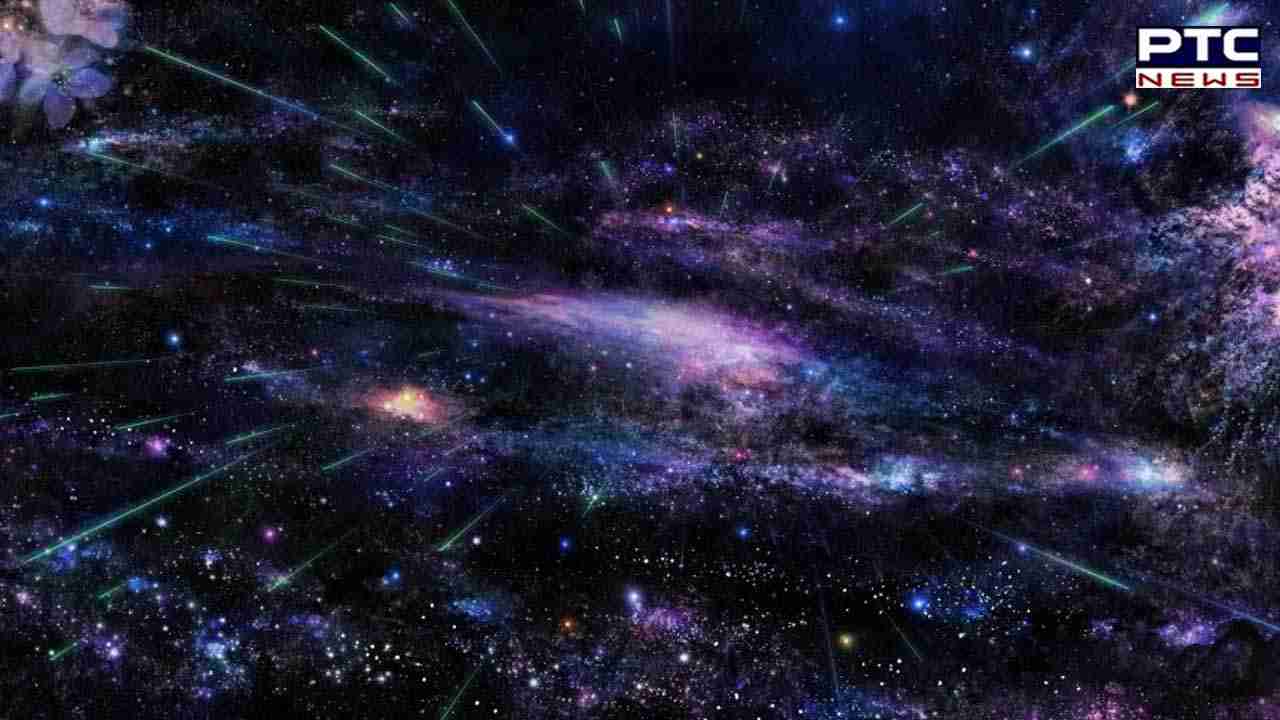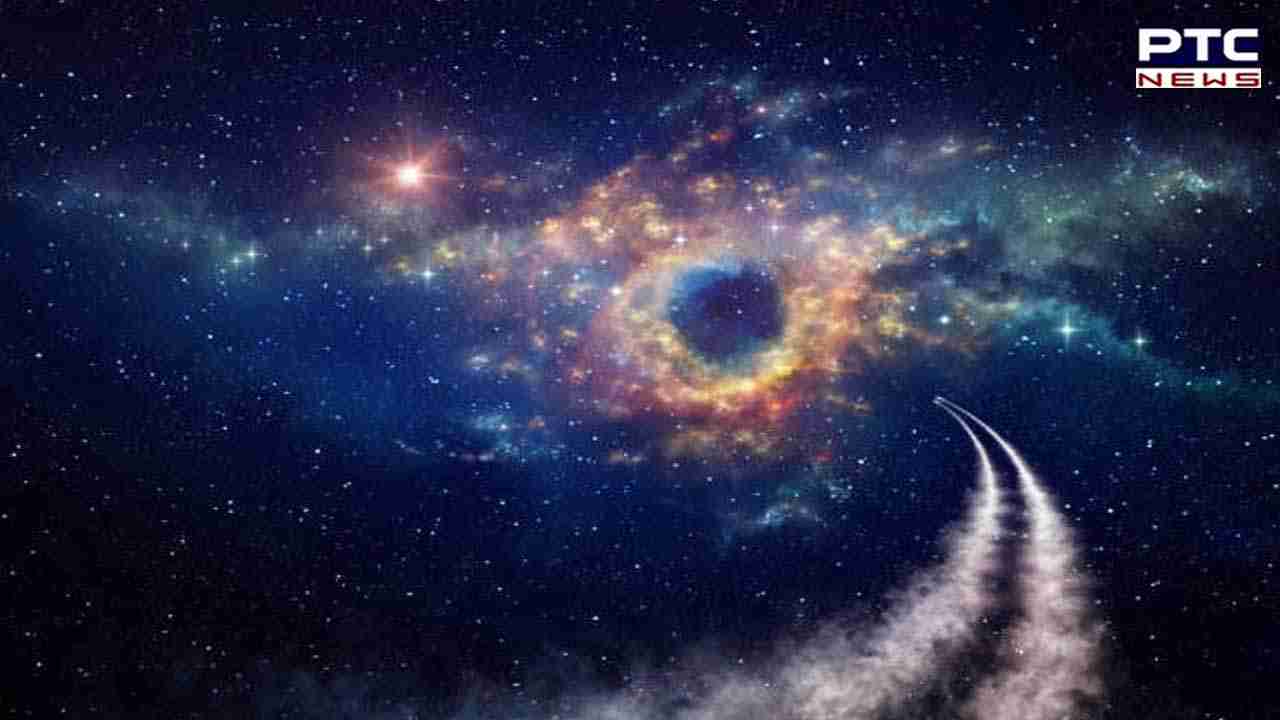

Scientists unveil the cosmic 'Background Hum': Discovery of gravitational waves rocks the universe
Paris, June 29: Astronomers from around the world have announced a groundbreaking discovery of low-frequency gravitational waves, confirming the existence of a long-theorized cosmic "background hum." This momentous achievement, accomplished by hundreds of scientists using radio telescopes across continents, has been hailed as a significant milestone that provides a new perspective into the workings of the universe.
First predicted by Albert Einstein over a century ago, gravitational waves are subtle ripples in the fabric of spacetime that propagate unhindered through everything at nearly the speed of light. Their existence was confirmed in 2015 when the gravitational waves generated by the collision of two black holes were detected by observatories in the United States and Italy.

These high-frequency gravitational waves result from intense singular events and produce short bursts of immense energy. However, researchers have long been in pursuit of low-frequency gravitational waves that permeate space like continuous background noise.

Also Read: Solar Spectacle: NASA releases breathtaking photos of Sun's powerful solar flare
Uniting under the International Pulsar Timing Array consortium, scientists at gravitational wave detectors worldwide have now presented compelling evidence of these background waves. "We now know that the universe is awash with gravitational waves," said Michael Keith of the European Pulsar Timing Array.
To detect these low-frequency waves, astronomers focused on pulsars, the remnants of dead stars that exploded in supernovae. Pulsars emit regular beams of radio waves at precise intervals, akin to cosmic lighthouses, making them incredibly accurate clocks. By observing 115 pulsars throughout the Milky Way, researchers measured minuscule differences in their timing, searching for subtle indications of gravitational waves.

The team successfully detected changes of less than one millionth of a second across a span of more than two decades. Although the evidence aligns with Einstein's theory of relativity and our current understanding of the universe, the researchers emphasize that they have not definitively "detected" the waves at the gold-standard five sigma level of certainty. However, they estimate a 99-percent probability that the evidence points to gravitational waves.
The leading hypothesis suggests that these waves emanate from pairs of supermassive black holes at the centers of galaxies slowly merging over time. Unlike the black holes responsible for previously observed gravitational waves, these supermassive counterparts are unimaginably vast, often billions of times more massive than the Sun.
Confirmation of these waves would signify the cumulative effect of countless supermassive black hole binary systems orbiting at the cores of galaxies throughout the universe. Michael Keith likens it to "sitting in a noisy restaurant and hearing all these people talking" – the collective hum of these black holes.
Another theory posits that the gravitational waves may be remnants of the rapid expansion that occurred moments after the Big Bang, a period known as cosmic inflation that remains hidden from current observations. Galaxies situated between Earth and the Big Bang likely obscure these waves.
However, low-frequency gravitational waves hold the potential to unveil further insights into the early expansion of the universe and shed light on the enigma of dark matter. They could also enhance our understanding of black hole and galaxy formation and evolution. Combining data from all sources, scientists anticipate reaching the gold-standard level of certainty within the next few years.
Also Read: Apple likely to launch payment feature in India
- With inputs from agencies
